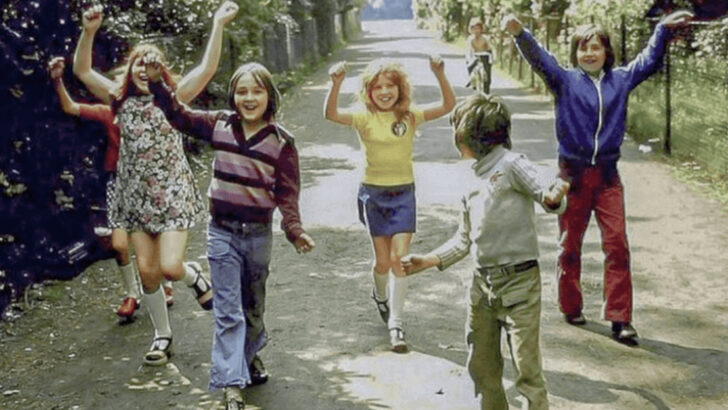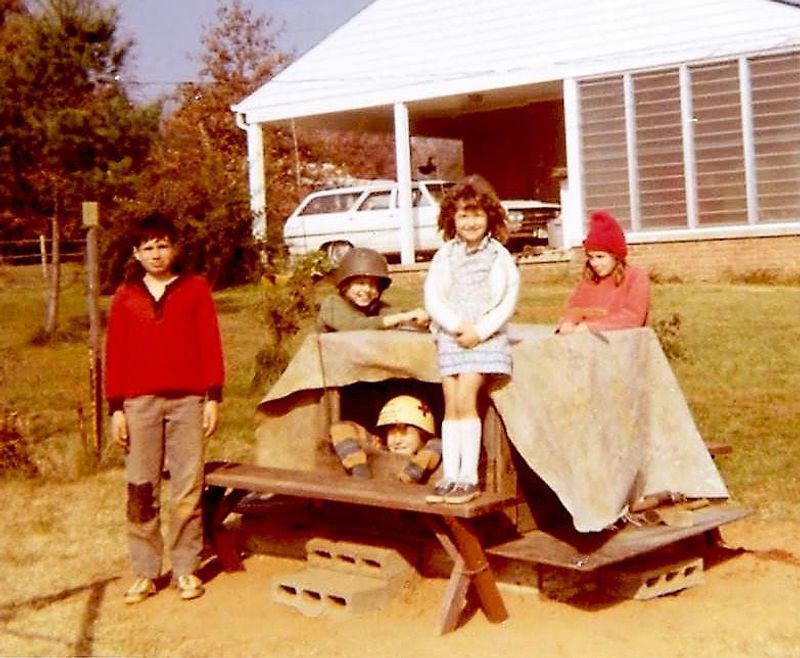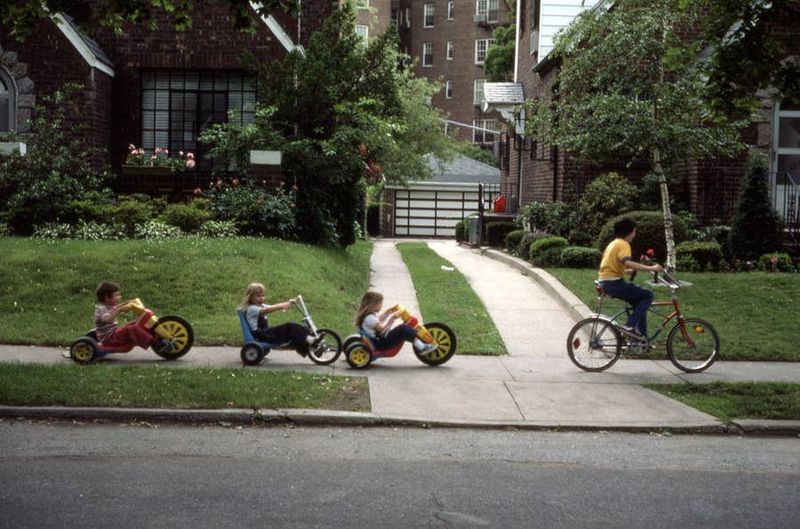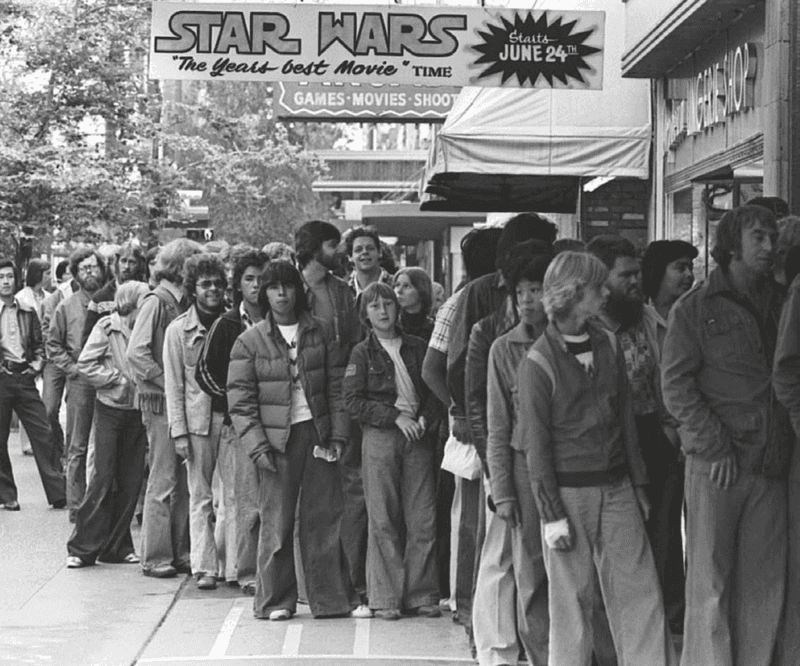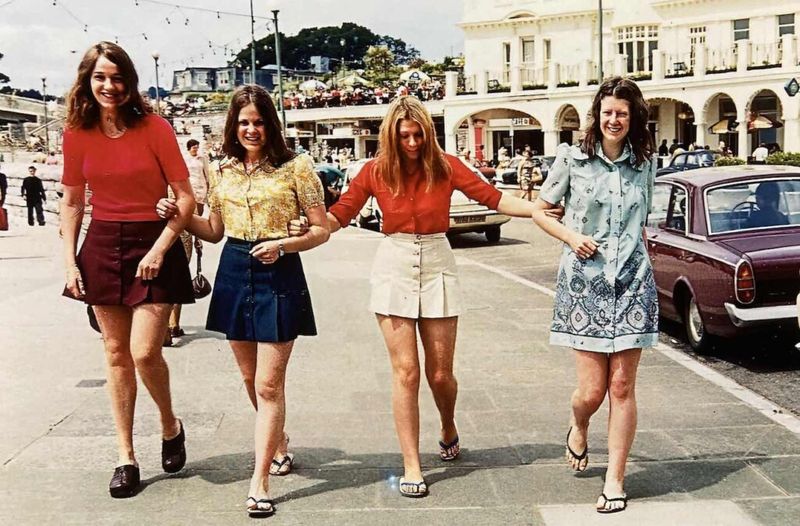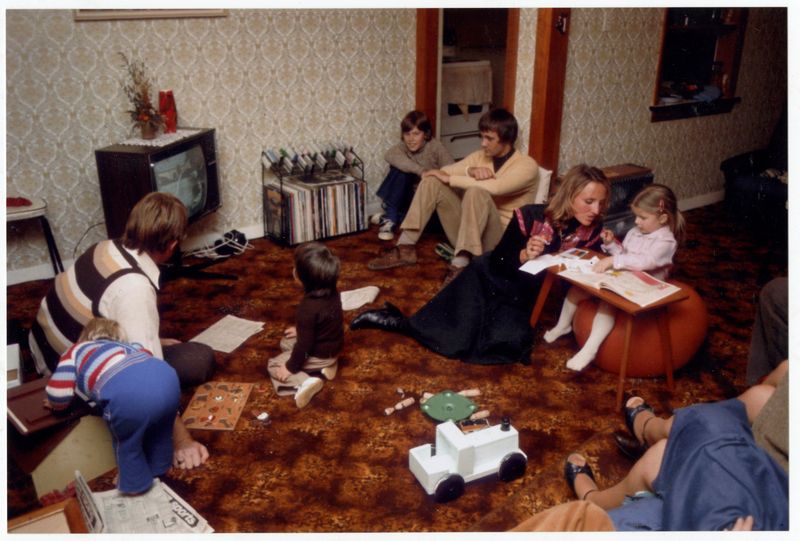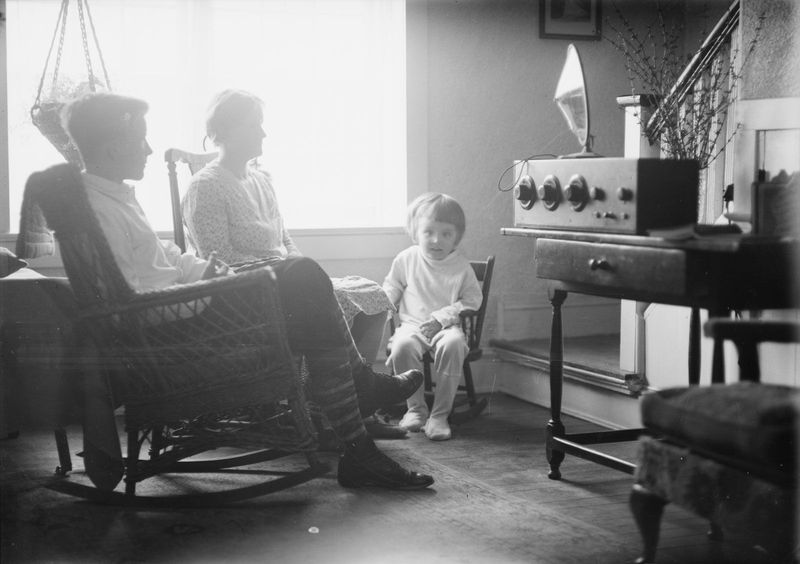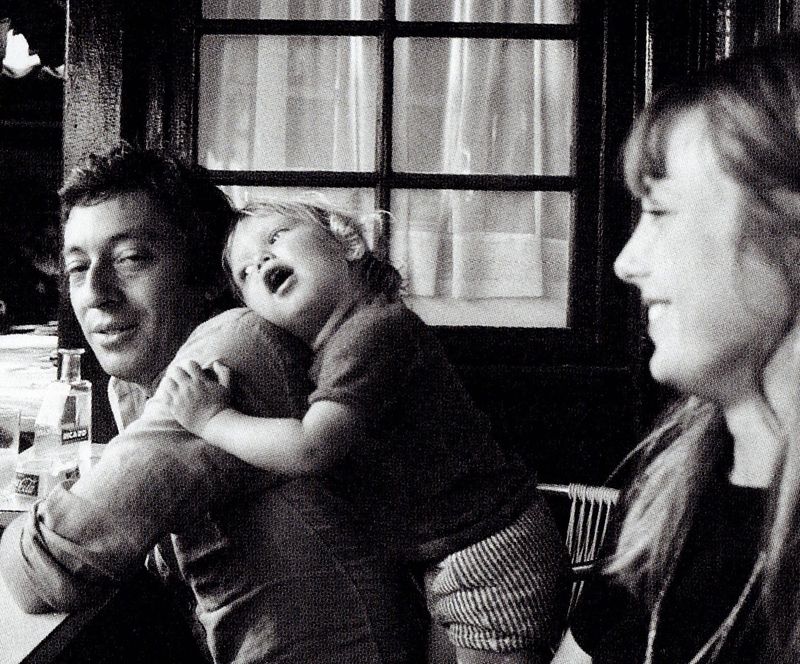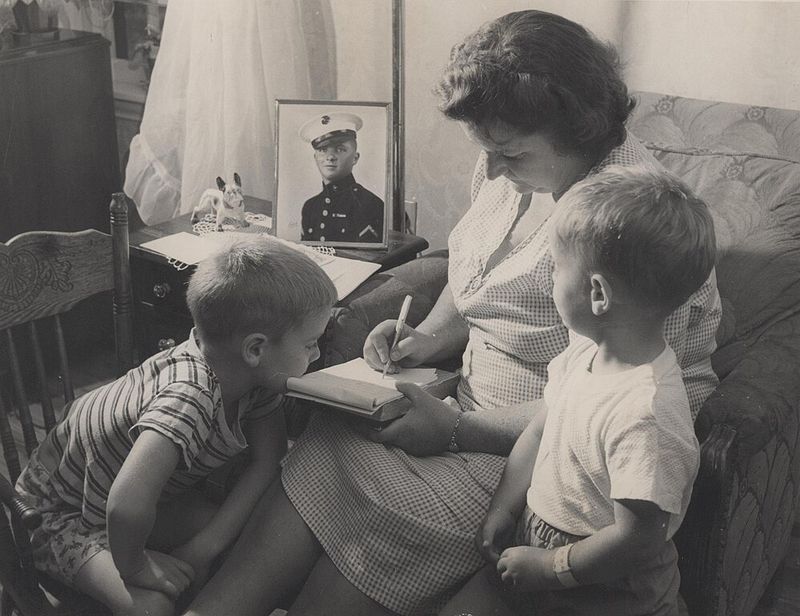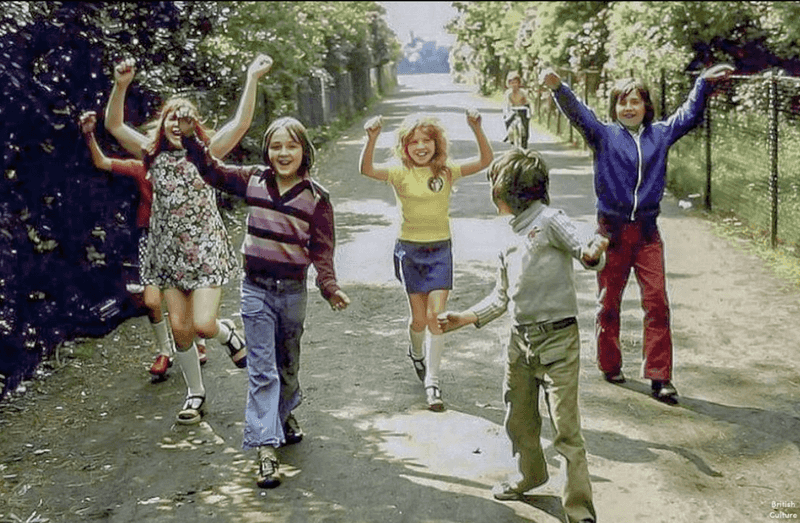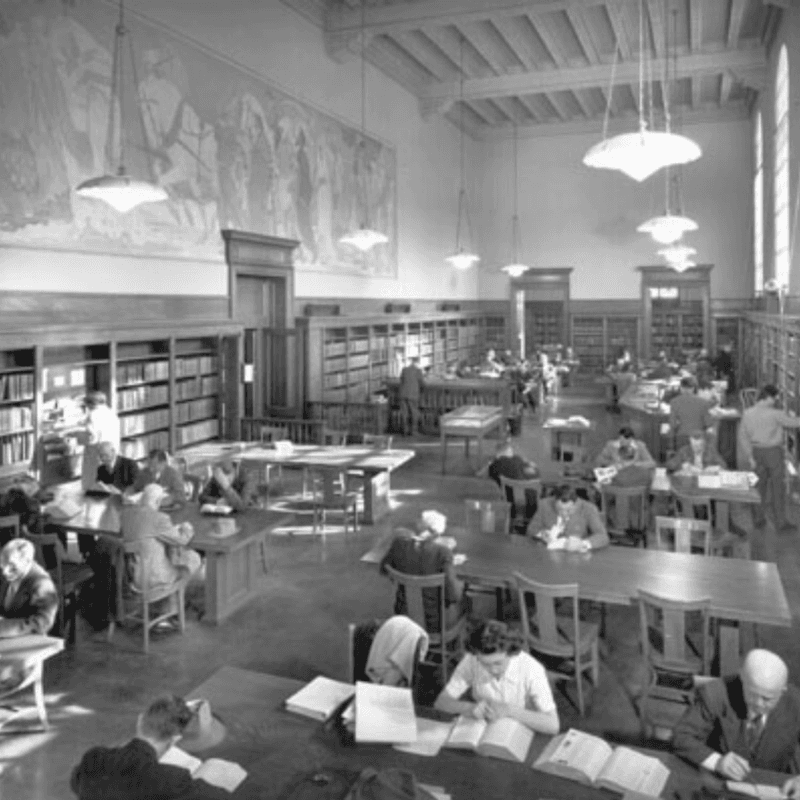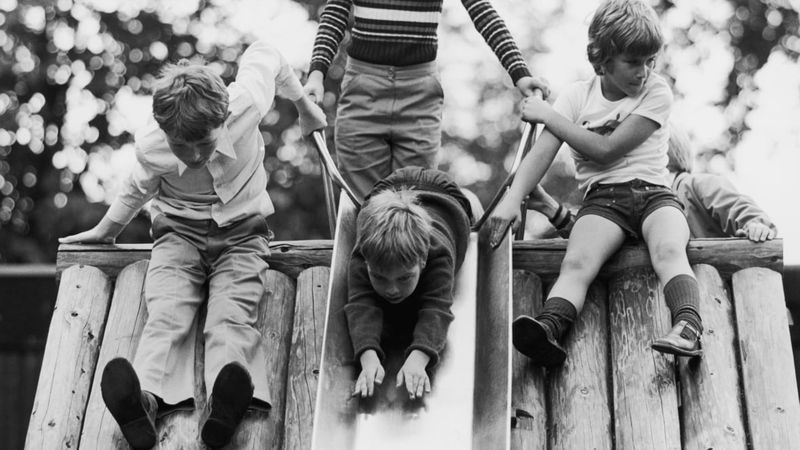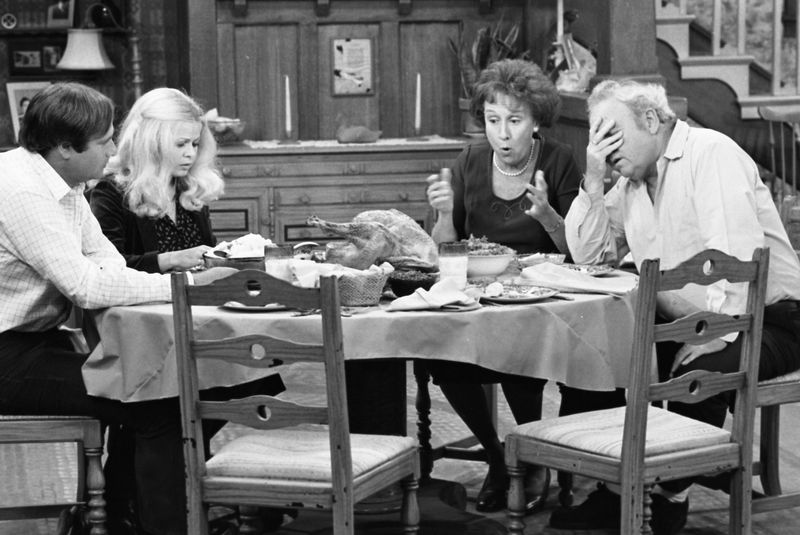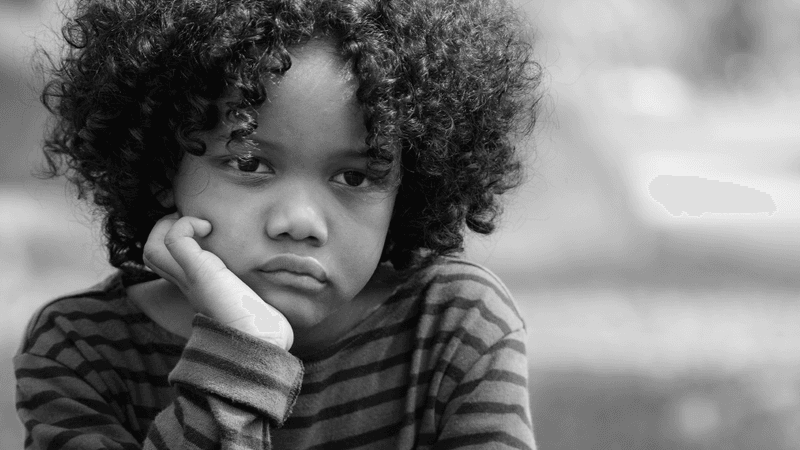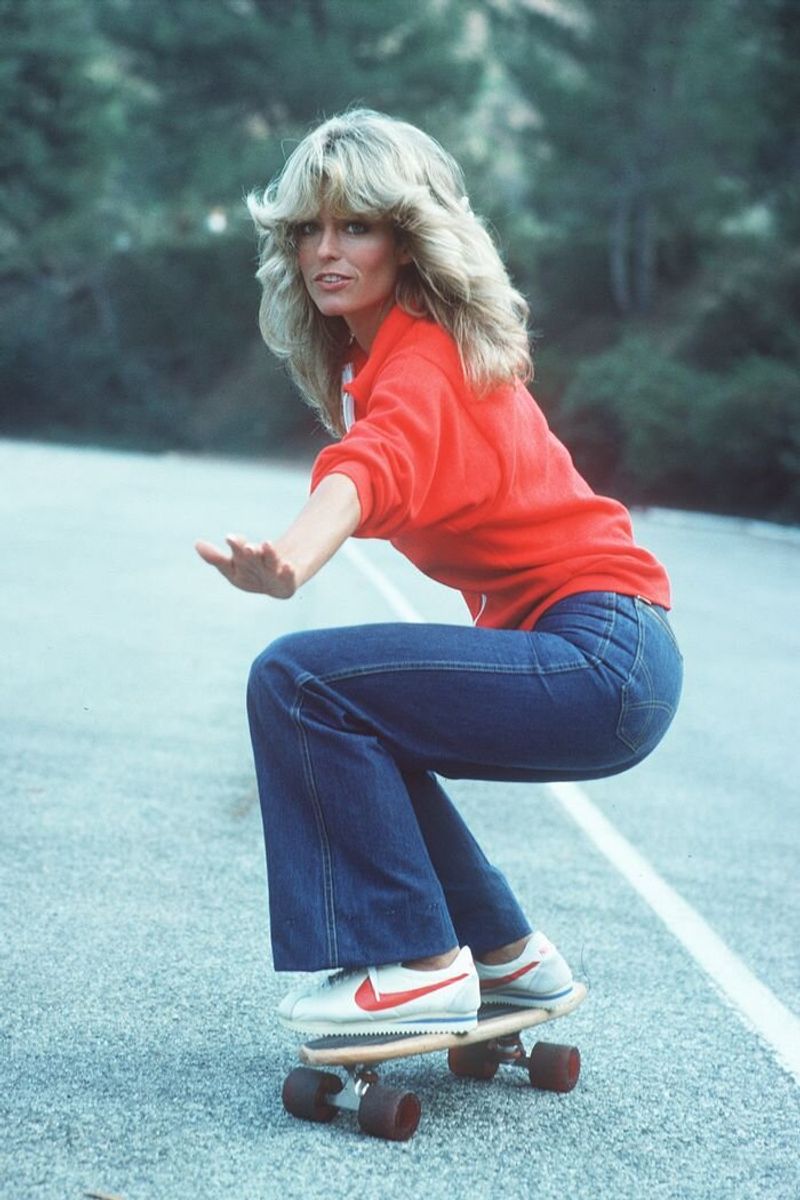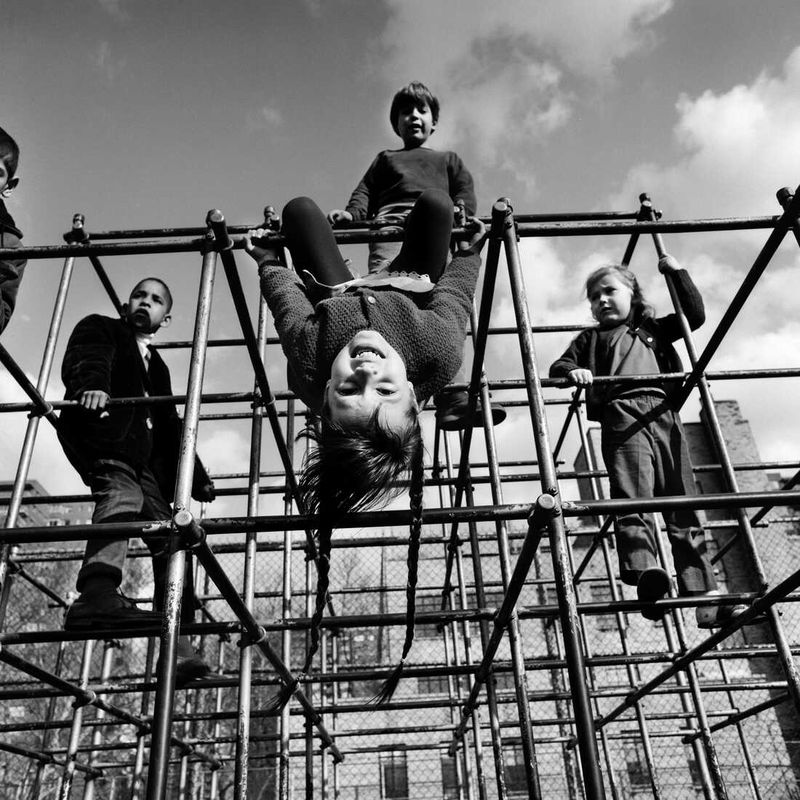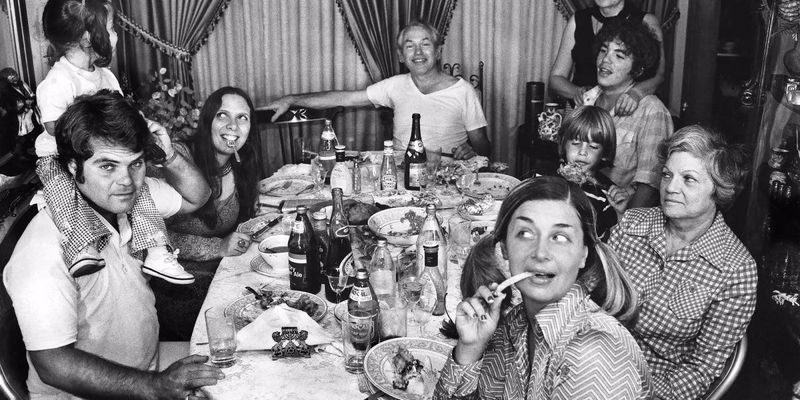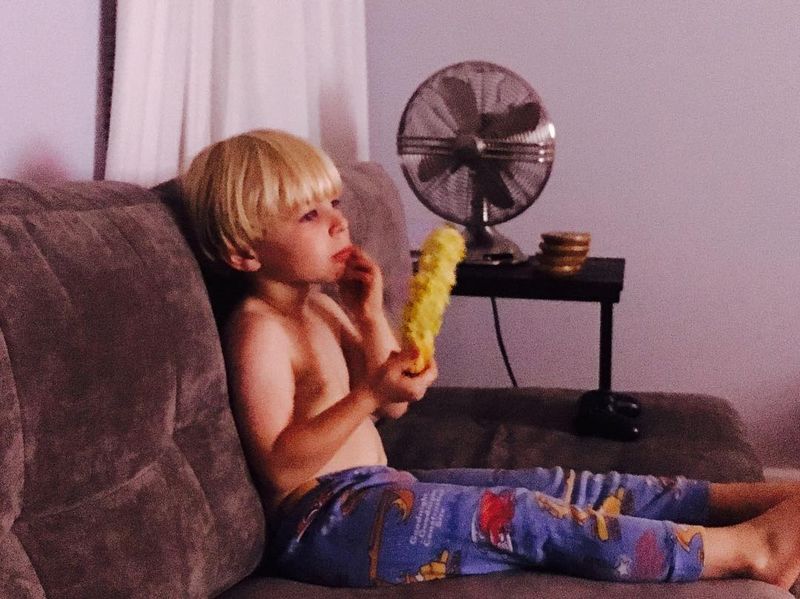The 1970s were a transformative era, imparting enduring lessons that resonate with those who grew up during that time. From cultural shifts to technological advancements, these years offered unique experiences that molded our personalities and values.
This post explores 18 distinct ways our childhood in the ’70s shaped who we are today. Embark on this nostalgic journey, reflecting on how those formative years equipped us with skills, insights, and resilience that remain relevant in our modern lives.
1. We knew how to entertain ourselves
Con no digital devices to distract us, children of the ’70s had to craft their own adventures. Sticks became swords, and backyards transformed into castles. Our creativity knew no bounds. We engineered make-believe worlds, with roles and rules defined by our imagination.
Even indoors, board games and crafts provided endless entertainment. The absence of screens cultivated a self-reliance in play, allowing us to savor the simple joys of childhood.
Such experiences fostered creativity, teaching us to find joy in simplicity. The allure of homemade fun built resourcefulness, as we continuously innovated to avoid boredom. These skills, honed in play, became assets in adulthood, encouraging problem-solving and adaptability in the face of modern challenges.
2. Independence wasn’t optional—it was expected
In the ’70s, independence was a rite of passage. Children walked to school, ran errands, and played outside without constant supervision. This era taught us to trust our instincts and make decisions, oftentimes learning from mistakes. Independence was not just a possibility; it was a necessity, fostering a sense of responsibility from a young age.
In a world free from the omnipresence of GPS and mobile phones, navigation and time management skills were developed naturally. This early freedom carved out a self-sufficiency that remains a hallmark of our generation’s character. We learned to trust ourselves and others, shaping an empowered and self-assured adulthood.
3. Our phones didn’t follow us everywhere
The rotary phone, stationary and often in the family room, dictated communication. Conversations were deliberate, and messages scribbled on notepads became crucial links between friends and family. The landline’s immobility meant that time spent outdoors or away from home was truly disconnected.
This detachment from constant connectivity fostered an appreciation for presence and mindfulness. When with friends, we were truly with them, unbothered by the lure of notifications. It taught us to engage deeply with the world around us. The absence of mobile phones encouraged patience and enriched our interpersonal connections, a contrast to today’s digitally tethered lives.
4. We learned patience by waiting for everything
Patience was a virtue honed in the ’70s, often through necessity. Lines were longer, mail was slower, and TV shows demanded strict adherence to schedules. Children learned to wait, whether for Saturday morning cartoons or the annual arrival of the Sears catalog.
Such experiences instilled a deep appreciation for anticipation and the rewards that come from enduring waits. The delayed gratification taught us to savor moments and cherish achievements. This patience became a lifelong skill, aiding in navigating today’s fast-paced, instant-results world with grace and composure.
5. We made plans—and had to stick to them
In the ’70s, plans were crafted with precision. Without digital calendars or instant messaging, decisions were made face-to-face or over a brief phone call. Once plans were set, they were adhered to, teaching us commitment.
This era valued reliability, fostering trust among friends and family. Arriving late or canceling last minute was not an option, as there were no instant updates. This commitment to plans cultivated responsibility and accountability, traits that continue to guide us today. We learned the importance of our word and the impact of reliability on relationships, shaping an ethos of loyalty and dependability.
6. TV taught us more than it should’ve
Television, a focal point of ’70s living rooms, offered a window into the world. Shows were few but impactful, presenting a blend of entertainment and subtle education. From sitcoms to documentaries, TV shaped our perceptions and broadened our horizons.
The limited programming meant we watched intentionally, often with family, sparking discussions that deepened our understanding of diverse topics. It taught us critical thinking as we discerned fiction from reality. The collective viewing experience also reinforced family bonds, creating memories and shared references that linger in our collective memory.
7. The news was always on in the background
News broadcasts were a staple, bringing the world into our homes. Parents listened intently, and children absorbed information, sometimes without understanding its gravity. This exposure cultivated awareness and curiosity about global affairs.
The discussions that followed these broadcasts taught us to form opinions and engage in dialogue. It fostered a sense of civic duty and an understanding of the broader world, laying the groundwork for informed citizenship. These experiences nurtured an informed generation, eager to participate in shaping the future.
8. We understood privacy in a different way
Privacy in the ’70s was a sacred concept. Diaries with little locks safeguarded our secrets, while bedroom doors offered personal sanctuaries. The absence of social media allowed for genuine private moments, shared selectively and intimately.
This understanding of privacy cultivated trust and respect among peers and family. It taught us the value of discretion and the importance of personal space. These lessons fostered deep, meaningful relationships, built on mutual respect for boundaries. The ’70s instilled a reverence for privacy that remains integral to our interactions today.
9. Handwritten notes mattered
In an era where emails and texts were nonexistent, handwritten notes bridged distances. Letters to pen pals, thank you notes, and birthday cards were personal connections, each stroke of the pen conveying sincerity.
Writing by hand cultivated thoughtfulness and reflection, as each message required intention and care. These letters became keepsakes, cherished for their tangible representation of emotion and connection. The practice of writing fostered strong communication skills and patience, as we awaited replies. This appreciation for personal touch in communication has stayed with us, emphasizing the value of effort and authenticity.
10. We played outside because there was nothing else
Outdoor play was the cornerstone of ’70s childhood. With limited indoor distractions, parks, playgrounds, and yards became arenas for exploration and fun. Games like tag and hide-and-seek honed agility and creativity.
Such experiences fostered health, both physical and social, as children navigated friendships and rules. The outdoors offered freedom and adventures that screen-bound activities couldn’t replicate. This immersion in nature cultivated a lifelong appreciation for the environment and a sense of community, values that have influenced our approach to life and relationships.
11. We learned to problem-solve without Google
The ’70s taught us to seek answers through books, libraries, and conversations. Without the convenience of Google, problem-solving demanded creativity and resourcefulness. Encyclopedias and librarians became trusted allies in our quest for knowledge.
This era honed our research skills and persistence. We learned to think critically and evaluate information, skills that have become invaluable in today’s information-rich world. The ability to solve problems independently has fostered confidence, equipping us to navigate challenges with resilience and ingenuity.
12. Mistakes didn’t go viral—they stayed in the moment
In the ’70s, mistakes were private affairs. Without social media, minor blunders were forgotten, not broadcasted. This afforded us the freedom to learn and grow without fear of public scrutiny.
This environment nurtured a healthy perspective on failure, viewing it as a step towards success rather than a setback. Mistakes became lessons, teaching resilience and humility. This approach to errors has instilled a growth mindset, encouraging us to embrace challenges and learn from them.
13. Our parents weren’t our best friends, and that was okay
Parent-child dynamics in the ’70s were defined by respect and boundaries. Parents were authority figures, providing guidance and discipline. This structure created a clear understanding of roles within the family.
While friendships with parents were rare, the relationships were deeply rooted in love and trust. This dynamic fostered independence and decisiveness, as children learned to navigate the world with parental support from a respectful distance. The respect cultivated in these relationships has shaped our interpersonal interactions, emphasizing boundaries and mutual respect.
14. We learned resilience from boredom
Boredom was a frequent companion in the ’70s, but it was far from wasted time. Without constant entertainment, children were forced to invent their own. This boredom spurred creativity and the ability to entertain oneself.
Such experiences fostered resilience, as we learned to find comfort in solitude and joy in creation. This ability to embrace stillness and create something from nothing has become a valuable skill, enabling us to adapt and innovate in various aspects of life.
15. Style was more about expression than trends
Fashion in the ’70s was a canvas for self-expression. Bell-bottoms, tie-dye, and eclectic choices represented individuality rather than conformity. Style was personal and diverse, free from the dictates of fast fashion.
This era taught us to embrace uniqueness and express our identity through clothing. The focus on expression over trends fostered confidence and self-awareness. These lessons in individuality continue to influence our self-presentation, encouraging authenticity and creativity.
16. We developed thick skin from playground politics
Playground dynamics in the ’70s were a microcosm of society, complete with challenges and alliances. Navigating these interactions taught resilience and empathy. Negotiating playtime territories honed our social skills, preparing us for broader societal interactions.
These early experiences taught us to handle conflict, compromise, and stand up for ourselves. The thick skin developed on playgrounds equipped us to face life’s challenges with confidence and grace. The lessons in resilience and diplomacy remain pivotal in our personal and professional lives.
17. Our friendships weren’t filtered
Friendships in the ’70s were unfiltered and genuine. Without social media, connections were built on face-to-face interactions. These relationships were rich in honesty, built through shared experiences and trust.
This authenticity in friendships fostered deep bonds and taught us the value of sincerity. The absence of digital façades allowed for vulnerable and meaningful connections. These lessons in friendship have guided us in building honest and supportive networks throughout life.
18. We knew how to be alone without feeling lonely
Solitude in the ’70s was not synonymous with loneliness. Moments spent alone were opportunities for introspection and creativity. Without constant connectivity, we learned to appreciate our own company.
These periods of solitude fostered self-awareness and self-reliance. The ability to be content alone has fostered a strong sense of identity and independence. This comfort with solitude remains a valuable asset, allowing us to navigate life’s complexities with confidence and inner peace.

